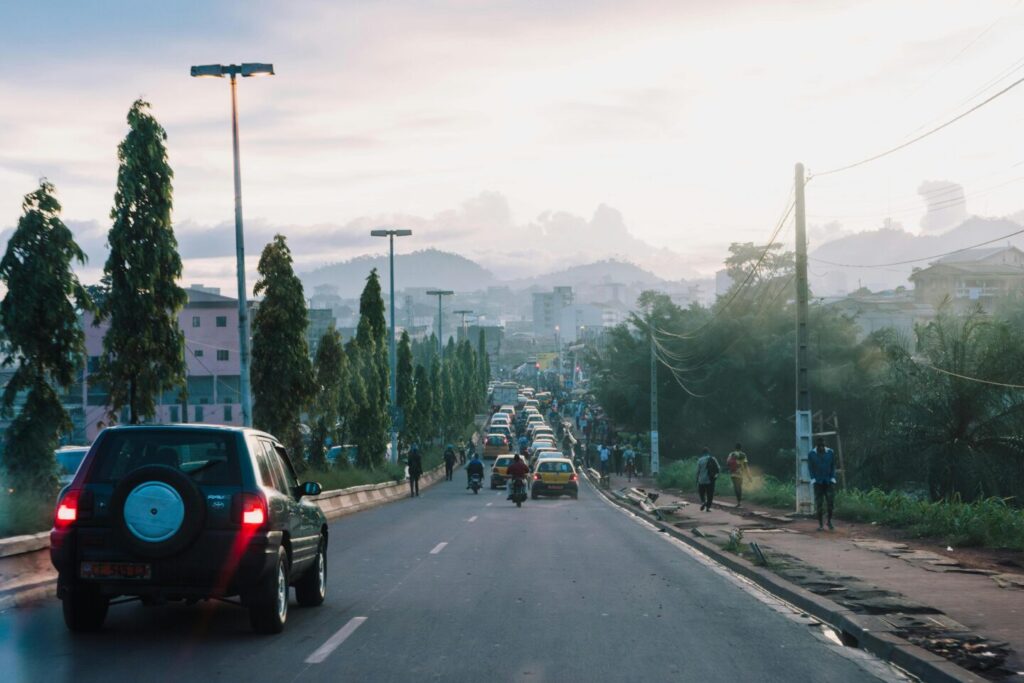
Youth and Women Volunteers: Pillars of Community Resilience in Sub-Saharan Africa
Think piece author:
NDJELEME KOUMDJALA Hyacinthe is a Cameroonian professional committed to community development, gender promotion, environmental protection and citizen participation.
In many African communities, economic, social and environmental crises are making daily life increasingly precarious. However, in these fragile contexts, a silent force, often underestimated, is active at the heart of local dynamics: that of volunteering carried out by young people and women.
In Cameroon, this energy is manifested in a dazzling way. Far from being simple volunteers, these volunteer actors are establishing themselves as pillars of community resilience, by responding in an innovative and committed way to local challenges. Whether it is health, the environment, social justice or citizen participation, their actions contribute to the transformation of territories.
Concrete and transformative voluntary commitments
In Nkolbisson, a working-class district of Yaoundé, a group of young people and women has formed an association to respond to the scourge of the anarchic dumping of rubbish. Without initial institutional support, they conducted awareness campaigns, organised collection days and advocated with the authorities. Their mobilisation ended up attracting the attention of the Inclusive and Resilient Cities Development Project (PDVIR), which allowed the acquisition of tricycles to strengthen their action. Today, waste is collected more efficiently, and the cleanliness of the area has improved significantly. This example shows how a voluntary initiative can catalyse a sustainable improvement in urban living conditions.
In rural Cameroon, the SONATREL (2022–2023) and CAMRAIL (2020–2021) projects highlighted the crucial role of volunteer community facilitators, mostly youth and women, in the prevention of gender-based violence (GBV), child protection and the promotion of complaint management measures. Their involvement has led to a collective awareness of abuses, an increase in denunciations and the emergence of a community commitment to respect for human rights. In villages like Kemetou or Nkolesson, women now dare to speak out, and young people are becoming agents of local change.
These experiences show that volunteering, far from being a simple transitional stage, can be a springboard for local leadership, as evidenced by the journey of Oumarou, a young volunteer who has now become the focal point of the PDVIR project in his constituency, and a figure of respect and mobilization in Nkolbisson.
A pool of skills that is still undervalued
For many young people and women, volunteering is the first and sometimes only way to social and professional integration. In sub-Saharan Africa, where inactivity and underemployment affect a large majority of young people (nearly 85%, according to some estimates), voluntary projects become spaces for learning, experimentation and engagement. Some are involved in environmental campaigns, others in social mediation, gender promotion or support for vulnerable populations.
Many of them, through these commitments, discover a vocation, refine skills, or embark on training courses to deepen the themes addressed. Volunteering thus becomes a laboratory of social innovation, and a school of collective empowerment.
Structural limitations that hinder the potential of volunteering
Despite these successes, volunteering is still poorly supervised, little valued and sometimes exploited. Many initiatives led by young people and women struggle to find institutional relays, sustainable funding or official recognition. Some organizations, although funded, rely on voluntary work without any real compensation or prospect of development for the people involved. This reality creates a sense of frustration, even discouragement, for those who give of their time and energy without a fair return.
It is therefore becoming urgent to structure the volunteering ecosystem in Africa, by putting in place legislative frameworks, support mechanisms, and public policies favorable to the recognition and support of citizen initiatives.
For a recognized, supported and promising volunteering
The reflection we propose at IVCO 2025 is based on a strong conviction: in fragile contexts, volunteering by young people and women is a driver of resilience and social innovation. It makes it possible to strengthen cohesion, improve local governance, and promote social and environmental justice.
But to unleash its full potential, this volunteering must be better recognised, better supervised and better supported. This requires a stronger commitment from local authorities, NGOs, technical and financial partners, but also the implementation of rewarding pathways for the volunteers themselves.
At a time when the world is looking for sustainable responses to global crises, Africa offers a lesson in courage, creativity and solidarity. These young people and women volunteers are not passive victims of difficulties: they are the builders of a fairer and more resilient future.

NDJELEME KOUMDJALA Hyacinthe is a Cameroonian professional committed to community development, gender equality, environmental protection and citizen participation. He has more than six years of experience in supporting projects that integrate social, environmental and inclusive dimensions. Very involved in community volunteering, he campaigns for its recognition as a lever for resilience and social transformation.
